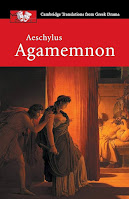(
TESOL Ideas--
Any Vocabulary Set,
Stages of a Vocabulary Lesson)
I like teaching vocabulary lessons because vocabulary is so easy to gamify. You can do any number of "guess the word" games or "match the word to the definition" games. And if you look through
my lesson archives, you'll see that I've used these types of games a lot (e.g.
grab the card,
backs to the board,
matching game,
crossword puzzle,
Describe the Card to Your Group,
taboo,
Bang!,
Blooket,
Gimkit,
quizlet,
Baamboozle).
...perhaps I've been guilty of using these types of games too much.
You see, the problem with these games is that they're not really practicing using the vocabulary in meaningful contexts. They're essentially just repeating
the clarification of meaning stage over and over again.
Now, don't get me wrong, these activities have their place. If you don't overuse them, they can be a fun game to liven up the lesson. They can also be useful for reviewing vocabulary from previous lessons.
But, in a vocabulary lesson, you need to move beyond simply recognizing the vocabulary, and start getting the students to use that vocabulary.
And again, if you look at
my archives, this is something I've not been great at doing in the past. (Historically I've often just gotten stuck on the "
match the word to the definition" games and not moved beyond it.) But it's something I'm going to try to do better on in the future. And this blog post will describe some ideas for practicing activities that are about actually using the vocabulary.
--Controlled Practice
--Semi-Controlled Practice
--Freer Practice
I included several ideas for activities
in that previous document, but that document was only for grammar. So, how can vocabulary be practiced at the controlled, semi-controlled, and freer level?
Well, the range of activities available will depend on the type of vocabulary--whether the target vocabulary for the lesson is all from
a single lexical set, or if the vocabulary for the lesson is from different lexical sets.
If all the vocabulary comes from the same context, then you've got a lot more activities that lend themselves to practicing that vocabulary. For controlled practice activities, you can get students to do ranking activities with these vocabulary (e.g. most important to least important). Or categorization activities (e.g. positive vs. negative traits). For freer practice activities, you can get students to discuss questions related to the general context. Etc.
However, in my experience, most of the vocabulary lessons that I have to teach deal with vocabulary items that are unrelated to each other--i.e. vocabulary items that are not all from the same lexical set. (
*1) (
*2)
That could be just my context, but I feel like that's the general trend these days.
So, this post will deal with practice activities that can be used for a vocabulary lesson in which the words are not from the same lexical set.
For those types of lessons, practice activities that work well are:
Controlled Practice
Gap-fill sentences. There are a series of sentences. Each sentence has a gap in it representing a missing word. The students have to fill in the missing word using one of the target vocabulary words from the day's lesson.
For some examples, see below:
Semi-Controlled Practice
Freer Practice
(*1) There's been some discussion in recent years about whether its best to present vocabulary in lexical sets or not.
Historically, the preference was to present vocabulary items as part of a lexical set. (Older textbooks reflect this.) But then research came out that said that students actually remembered the vocabulary better when the vocabulary in the lesson was not all from the same lexical set. This is counterintuitive, but I guess the logic was that if you presented students with 20 vocabulary words that were all from the same context, the students would start to confuse the words with each other. See, for example, this article
HERE.
So, for a few years, the common wisdom was that the vocabulary in a lesson should not all be from the same lexical set.
But then the pendulum swung back the other way again, and people began to say that actually the research finding--that students learn better when the vocabulary is from different lexical sets--were over-reported, and maybe not accurate. So maybe we're now back again to the idea of teaching vocabulary as lexical sets?
...I don't know, and I've not kept up with the whole controversy in detail. This is just my impression of the whole thing, based on what I've been able to glean from
podcasts and blogposts, et cetera. Let me know if I'm getting anything wrong here...
But all that being said, for the average ESL teacher, I think it's a moot point. That's because the average ESL teacher doesn't have any control over what the target vocabulary will be.
Your average ESL teacher is just given a textbook and told to follow the textbook, and so the target vocabulary is whatever the textbook publishers choose. The only thing in the teacher's control is how best to practice this vocabulary, and so that's the purpose of this blogpost.
(*2) In many of my old posts, when I use the term "vocabulary set", I'm usually talking about the target vocabulary for a specific lesson. So, for example, in my post "
Activities that can be used for any Vocabulary Set" what I mean is activities that can be used for any vocabulary lesson--whether or not the target vocabulary comes from the same lexical set or not.
 (Book Review--Classics, Greek Mythology)
(Book Review--Classics, Greek Mythology)




























